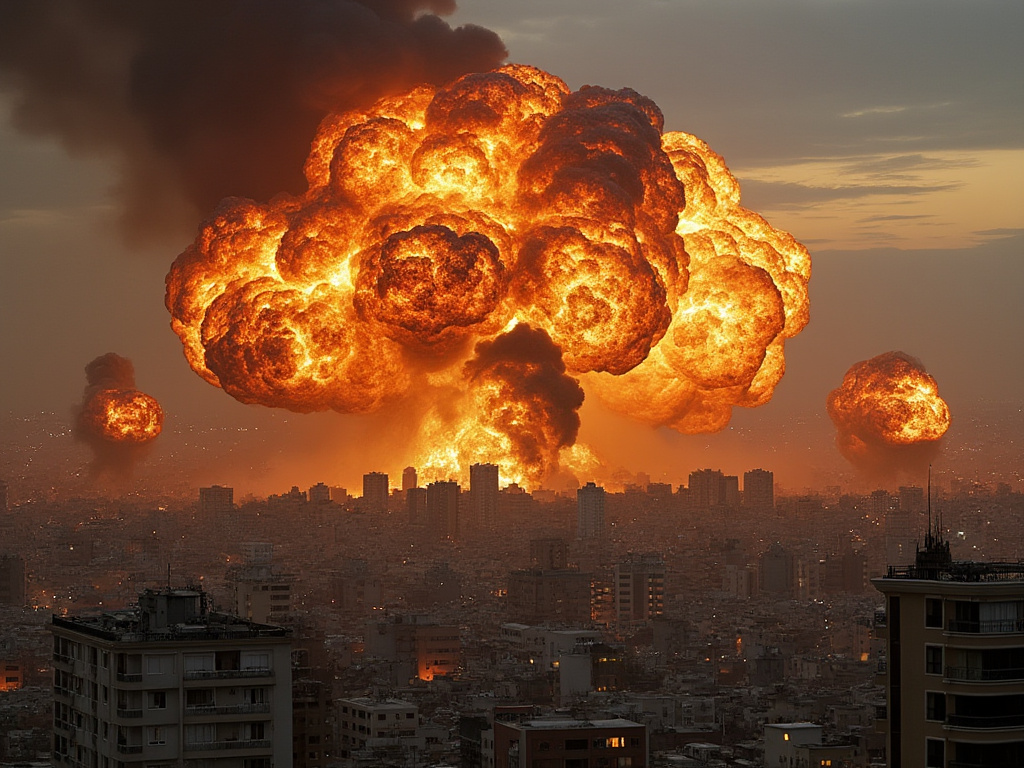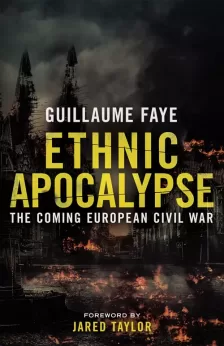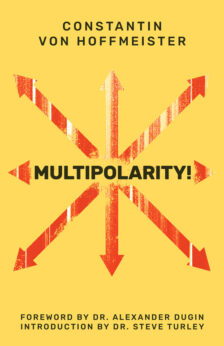Mr. Markovics, Israel is bombing targets in multiple countries, including UN positions, and recently eliminated the leadership of Hamas and Hezbollah. Is the country on the road to victory?
In my view, it currently appears more that Israel has overreached. As evidenced by its reliance on Western support in this conflict, Israel, despite its nuclear weapons, is not a sovereign state. The Israeli leadership seemed to have banked on a swift victory but is now facing a war of attrition in the ruins and fortified tunnels of the Gaza Strip. Hamas has lured Israel into a trap. Tel Aviv, which does not regard its adversaries as human, has severely underestimated the Palestinians. The Israeli economy is strained by the demands of a wartime economy, and the rating agency Moody’s recently downgraded Tel Aviv’s credit rating to Baa1, only three steps above junk status, due in part to Ansar Allah’s blockade of the Red Sea.
The question, then, is not if Israel will lose this war, but when, and how many Israelis, Iranians, and Arabs must die before the government of Netanyahu, a group drawn from the margins of Israeli society, is toppled and the war brought to an end.
But doesn’t the majority seem to support the war?
Currently, a massive opposition against Netanyahu is emerging, one that not only demands the return of hostages but also an end to the eternal war against neighboring states. Israeli society is weary of war, questioning the very existence of their state, which increasingly reveals itself as a Zionist death cult. Netanyahu now seems to be gambling on drawing the U.S. into a large regional war against Iran — but thus far, the U.S. has not acquiesced to this ambition. The continued existence of the last Western colonial state in the Middle East is, therefore, under a major question mark.
Why has the military operation in Gaza continued beyond October 7, 2023?
Israel is using the events as a pretext for implementing its Greater Israel plans through genocide. Netanyahu’s coalition partner, the Mafdal party, envisions a state encompassing present-day Egypt, Saudi Arabia, Syria, Lebanon, and Iraq. With a population of just over seven million Jews in Israel against more than 100 million Arabs in the region, this seems clinically insane, yet it is part of the postmodern Zionist ideology that regards the State of Israel as the Mashiach — the Jewish Messiah. Consequently, the previously good relationship between Israel and Russia is cooling rapidly. Meanwhile, Shia Muslims are increasingly antagonistic towards Israel, which has sent them a political death threat. Israel’s elite wishes to “assist” the appearance of the Jewish Messiah by destroying the Al-Aqsa Mosque in Jerusalem to build the Third Temple there, something massively supported by so-called Zionist Christians in the U.S. Anyone aware of Jewish-Zionist eschatology can better understand the events in the Middle East — and why Hamas, despite being massively outmatched, has taken up arms.
Even after the first anniversary of the Nova Massacre, Netanyahu seems not to prioritize the survival of the Israeli hostages taken to Gaza. Is that the case?
Benjamin Netanyahu is part of Israel’s new elite, raised in the U.S., which took over control from the old socialist elite (Golda Meir) of the kibbutzim in the 1980s, in alignment with the country’s radical right. While the old elite considered a two-state solution after the Nakba, the first genocide of Palestinians, the new Americanized elite dreams of Greater Israel and the end of the Palestinians, as evidenced by its brutal settlement and genocidal policies.
At the same time, they secretly despise the old elite and seek to eliminate them, as evidenced by the increasing polarization within Israel. The majority of the hostages come from this social stratum. As reported in the Israeli newspaper Haaretz, many Israeli casualties in the early days resulted from IDF “friendly fire” with tanks and helicopters, with the Hannibal Directive effectively disregarding the survival of Israeli civilians. This is why many demonstrators at the regular protests in the capital shout at Hamas, “Give us the hostages — take Bibi!”
In Lebanon, Israel has killed Hassan Nasrallah, Hezbollah’s Secretary General since 1992 and one of the region’s most important political figures. What strategy could be behind such an escalation?
A strategy of total escalation aiming for total war until the physical annihilation of the Palestinians and Lebanese. It was recently revealed that Nasrallah had agreed to a ceasefire with Israel shortly before his assassination — a situation Israel seemingly exploited to carry out the killing. Nasrallah himself was a charismatic figure who symbolized Hezbollah’s resistance like no one else.
While his death might weaken Hezbollah temporarily, Israel has created a martyr in the long run. At the same time, the Lebanese have been shown that there is no peace option — Israel does not merely want to eliminate Hezbollah; it wants no Lebanon in the Middle East. This fact, however, will only increase the resistance against the recent invasion, making it more uncompromising.
Events are unfolding rapidly in Iran as well. How should the situation there be assessed?
Iran is well aware of the nature of total confrontation with Israel. It views this confrontation through the lens of Islamic Shia eschatology and supports the Palestinians, Hezbollah, the Iraqi resistance, and the Houthis, along with their Ansar Allah organization. Iran has a theocratic regime forged in the fires of 40 years of harsh sanctions and has openly declared war on globalization.
Contrary to the hopes within the CIA and MI6, the Iranian government is stable, and in light of the Israeli terror in Palestine, the Iranian people stand united behind it. Iran has responded directly to Israeli attacks twice and, with its Fattah hypersonic missiles, demonstrated that it can overcome Israel’s missile defense shield. As a result, Israel’s escalation dominance in the conflict has been negated. Following the U.S.-led destabilization of the Middle East, Iran has significantly expanded its regional influence and views itself as the protector of the Palestinians. Through its drone and missile production, Iran also supports Russia in Ukraine, which, in turn, supports Iran economically and militarily, particularly in hypersonic missile technology.
The Houthis in Yemen are another important factor in the Middle East. Who are they, and what role do they play in the current war?
The Houthis in Yemen are a Shia group that, on the one hand, is a socially oriented movement aiming to raise the educational and living standards in Yemen, likely the world’s poorest country, where they have led a civil war for years. Yemen’s pro-Western government, with Western backing under Barack Obama, tried to preemptively destroy the Houthis, losing control over the north and the capital, Sanaa, in the process. The Houthis advocate an Islamic tribal socialism, comparable to the theocratic system in Iran and anti-imperialist in nature. In the ensuing war of annihilation, the Houthis, thanks in part to Iranian support, have managed to secure spectacular victories over Saudi Arabia. Now, they are fighting in solidarity with their Muslim brothers in Palestine against Israeli occupation. They are firing rockets at Tel Aviv and enforcing a successful blockade against Israeli shipping in the Red Sea, leading to the bankruptcy of the port of Eilat. Through the third front in the Red Sea, they play a significant role in the current conflict, and rumors suggest Houthi fighters may soon intervene in Lebanon.
The interview was conducted by Arne Schimmer.








Thanks for the explanation. Geopolitics is so much more complex than the man on the street could begin to guess. The jews are the problem. That part, like me, is simple.